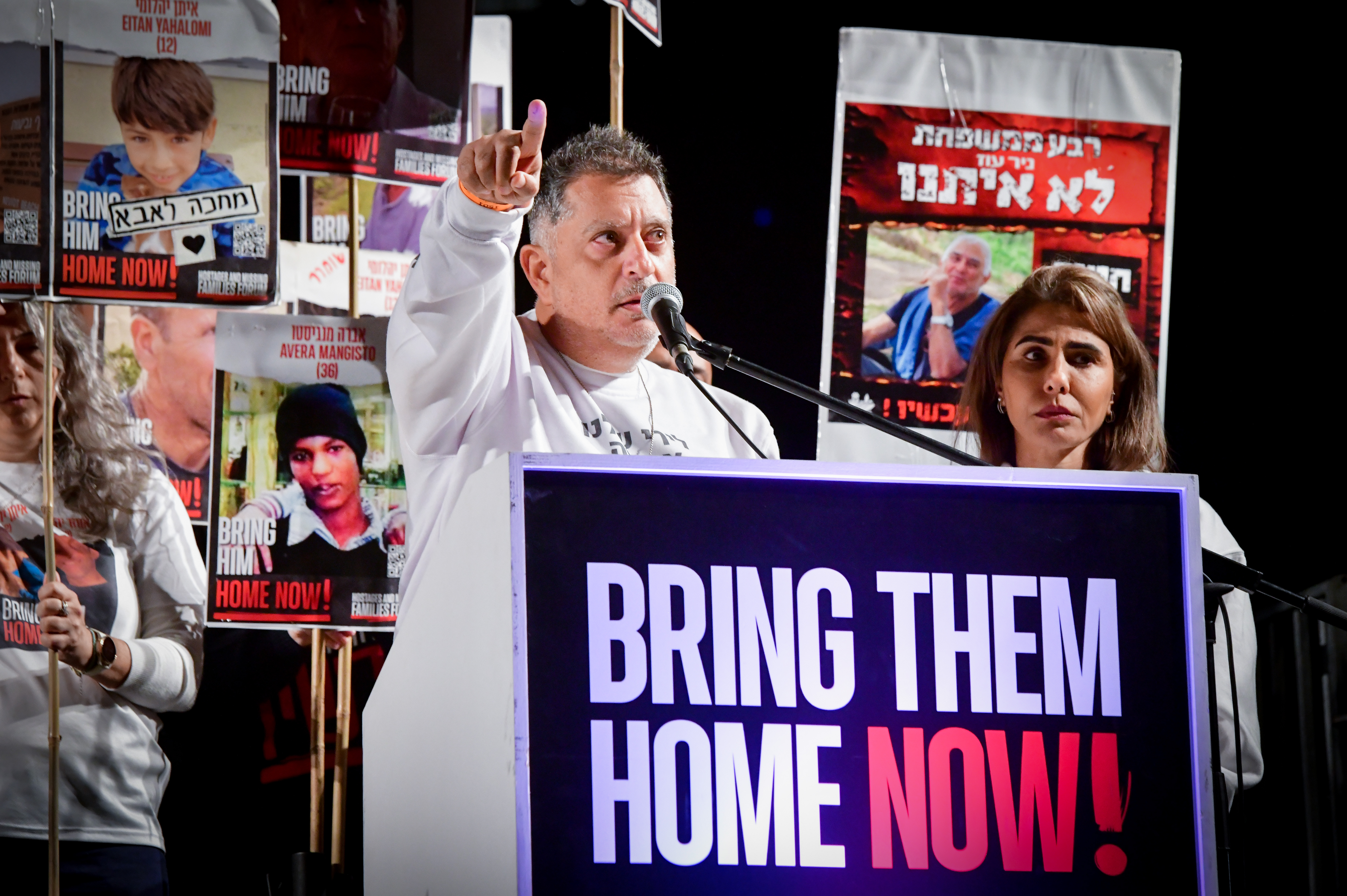Press Release: Overwhelming Majority of Jewish and Arab Israelis: The Release of all Hostages is an Important Goal
The Israel Democracy Institute's fifth War in Gaza survey is part of a special series since the outbreak of the war, conducted by our Viterbi Family Center for Public Opinion and Policy Research.
When we asked respondents to prioritize the following goals for the war, in most cases there were differences between the Jewish and Arab population. The distribution of responses of the total sample is as follows: first, releasing the hostages (49% - total, 49% - Jews and 50% - Arabs); followed by toppling Hamas (32% - total, 36.5% - Jews and 8% - Arabs); followed by restoring Israeli deterrence in the region (10% - total, 8% - Jews and 21% - Arabs); and finally, distancing all Gaza residents from the border with Israel by creating a security zone between Gaza and Israel (3% - total, 3% - Jews and 6% - Arabs).
When asked which goals are important more generally, among Jewish Israelis, toppling Hamas (94%) and releasing all the hostages (93%) are both war-goals of importance. Among Arab Israelis, 66% said the release of the hostages is important and just under one-third (29%) said the same of toppling Hamas.

Photo by Avshalom Sassoni/Flash90
Additional findings:
Across all political orientations, most Israelis think the government does not have a clear plan for after the war
The majority of all respondents (63%) think that the government does not currently have a clear plan of action for the day after the fighting in Gaza ends. This view is held by a large majority of Left wing Israelis (92.5%), a majority of Center Israelis (65.5%) and a small majority of Right wing Israels (52%).
Rising support for amending the Nation-State Law to safeguard equality for non-Jewish citizens
Around a year ago, only 40% of Jewish respondents supported amending the Nation-State Basic Law by adding an equality clause to the 2018 legislation. Today, seemingly due to the considerable number of Druze and Bedouin Israelis who have been killed and wounded since the beginning of the war, more than half (56%) are in favor of such an amendment. Support for this step has risen across all three political camps (Jews), and indeed has doubled on the Right, though it remains lower there than on the Left and in the Center.
Israelis are politically divided on how Israel should handle demands from the United States
We asked how Israel should respond to demands of the United States on Israel that may not be acceptable to Israeli leadership, such as agreeing to a humanitarian ceasefire. We found that 44% think that Israel should coordinate its actions with the United States, while 45% hold that it should act only in accordance with the judgement of Israel’s leadership. Around two-thirds of those on the Left are in favor of coordination with the Americans, compared with just over half of those in the Center and less than a third of those on the Right.


Public opinion has shifted somewhat on how to handle the Northern front with Hezbollah
A month ago (October 18–19) when asked how Israel should respond to Hezbollah attacks in the north, Israelis were divided between thinking Israel should immediately strike at Hezbollah (43%) and thinking Israel should refrain from opening another front (41.5%). Today, more than half believe that Israel should strike at Hezbollah (52%), while just over a third (35%) say that Israel should exercise restraint on the northern front.
Most Israelis think the Prime Minister should not allow judicial overhaul to advance; divided on what Benny Gantz should do if the overhaul moves ahead
We asked: “At the beginning of the war, the prime minister promised that the judicial reforms would not be advanced, which was also the basis on which the National Unity party joined the emergency government. In recent days, it has appeared that Minister of Justice Levin is continuing to advance some of those reforms. In your opinion, what should Prime Minister Netanyahu do?” Among Left (86%) and Center (84%) Jews, the overwhelming majority think the Prime Minister should halt Minister Levin’s moves, while the Right is divided with 40% in favor of halting them and 40.5% think they should continue to be advanced. As to what National Unity Party leader Benny Gantz should do, nearly 50% of Israelis think he should remain in the government if they advance, while 32% think he should resign, with divisions by political orientation.


Israelis divided on the relaxed firearm regulations
Since the outbreak of the war, around 8,000 firearms have been issued to civilian defense squads throughout the country in order to improve readiness to respond to terrorism. Amidst concerns of unintended consequences of relaxed firearm regulations, we asked what the policy on firearms should be moving forward. 51% of the Jewish respondents said that the policy of issuing firearms using the new criteria should be maintained, a view held by only a tiny minority of Arab respondents (5.5%).
The survey was conducted by the Viterbi Family Center for Public Opinion and Policy Research at the Israel Democracy Institute. Data collection was carried out between November 19–20, 2023, with 518 men and women interviewed via the internet and by telephone in Hebrew and 106 in Arabic. The maximum sampling error was ±4.00% at a confidence level of 95%. Field work was carried out by the Lazar Research Institute headed by Dr. Menachem Lazar.
